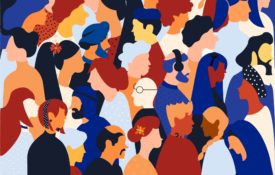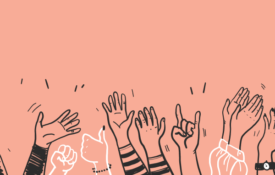-

Derek Avery on Injecting Facts, Not Feelings, Into DEI Debates
The work of this APS Fellow is showing how fairness and inclusion can actually bolster organizational performance.
-

Global Science Requires Greater Equity, Diversity, and Cultural Precision
Three authors discuss the discrepancy between espoused ideals for a global science and implicit biases that perpetuate unequal visibility and representation in psychological science.
-

Representation and Relevance: Diverse Scholars Share Ideas for a More Equitable Field
In this edition of Student Notebook, we invited diverse scholars within the APSSC community to share some of their perspectives and experiences as young scholars from marginalized groups and their hopes for creating a more inclusive and equitable psychological science.
-

Careers Up Close: Joel Anderson on Gender and Sexual Prejudices, the Freedoms of Academic Research, and the Importance of Collaboration
Joel Anderson, a senior research fellow at both Australian Catholic University and La Trobe University, researches group processes, with a specific interest on prejudice, stigma, and stereotypes.
-

The Contact Conundrum: Reducing Conflict Through Intergroup Contact
A conversation between Jennifer L. Eberhardt and Linda R. Tropp on the links between intergroup contact and racial and ethnic relations.
-

The Story Behind “The Future of Women in Psychological Science”
In September 2020, APS published the first-ever gender parity review of psychological science: “The Future of Women in Psychological Science.” The story behind this study, as told by some of the authors, is a compelling examination of personal experiences and observations.

